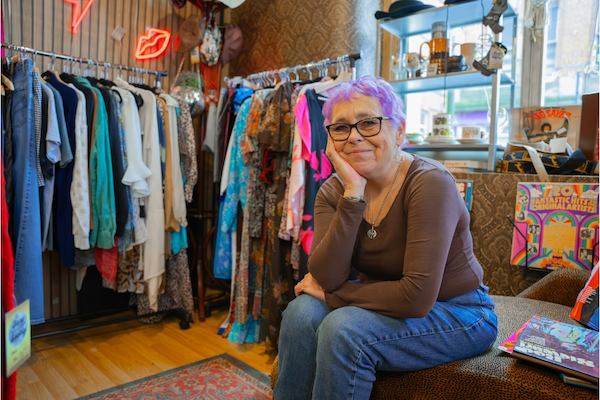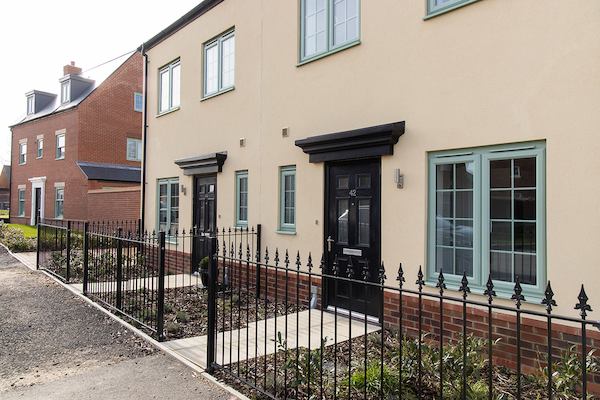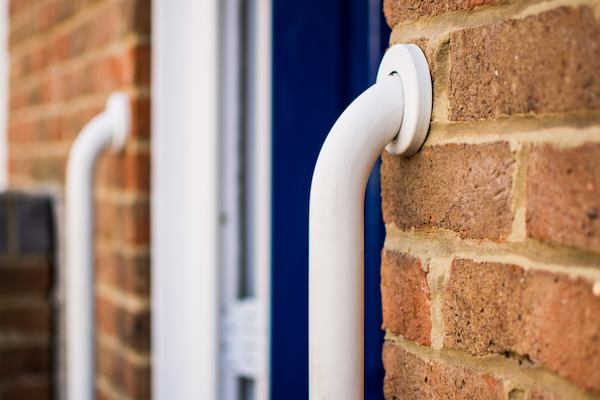Why Lizzie is #AgeingWithPride
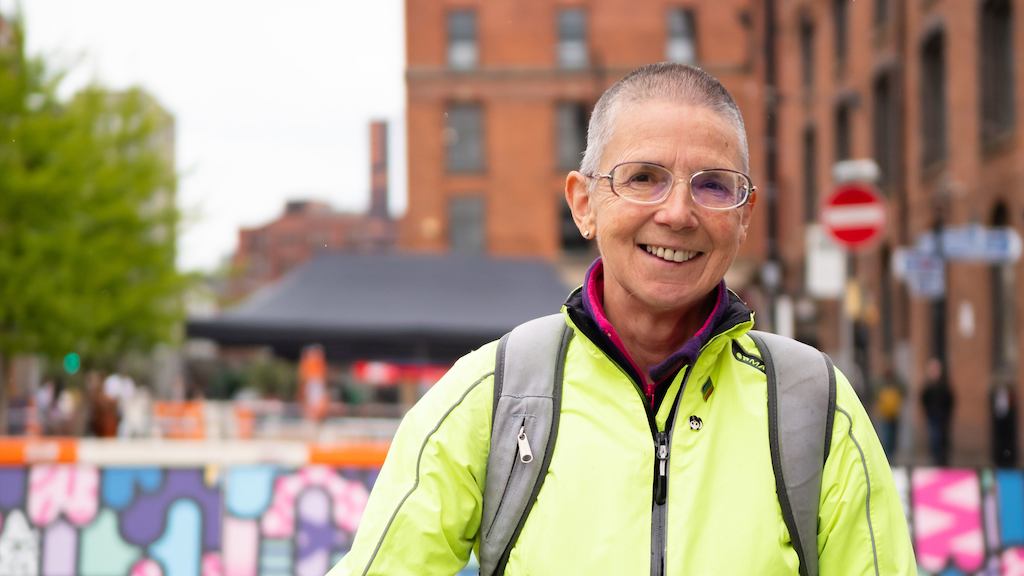
“Libraries are amazing places to promote positive LGBT+ role models and resources. That’s what they’re all about: access to information.”
By the time I was in my mid-teens, I realised that I was probably different from my school friends, but I didn’t know how or why, or what to do about it. There was just no information at all. That’s the most significant change that I’ve noticed over the course of my life. There wasn’t any information or positive LGBT+ role models available. Looking back to late teens, it was basically like a fog of confusion.
I grew up in Dorset on a farm. At one point I did try and find out if there were any places to meet other lesbians when I was still at home, but the nearest big town was Bournemouth. I thought ‘Oh god that feels far too scary’, the idea of getting a bus and going somewhere late at night.
The only thing I could come across was a book that was written in 1928 by a woman called Radclyffe Hall called ‘The Well of Loneliness’. It’s the most gloomy and negative portrait of lesbianism that you could think of. I thought ‘Oh dear! That’s not much help really’.
The difference in coming to Manchester was that it was easier to find things. There was a gay centre, it was in a really grotty part of town, but it existed. There was also a chance of meeting other lesbians. Hoorah!
I fell heavily in love with another student when I was at university. We talked about similar interests, we read the same books. But neither of us mentioned the word lesbian in any of our conversations. So, it was a sort of relationship but not a proper relationship.
I’m based in Manchester now and I’ve lived here since 1980. I came here after I decided what I really wanted to do was go into librarianship. The difference in coming to Manchester was that it was easier to find things. There was a gay centre, it was in a really grotty part of town, but it existed. There was also a chance of meeting other lesbians. Hoorah!
In the 1980s a lot was changing. Companies like The Women’s Press and Virago started publishing fiction by women and promoting it. Libraries started buying these books, which coincided with the city council setting up equality units. They also set up subcommittees that invited members of the public to join and help set policies, which I got involved in. So suddenly, everything was possible!
One of my main sources of entertainment is going to the cinema and you can see how much portrayals of lesbians have changed. Just last night, I went to the cinema to see ‘Ammonite’, a film about a geologist, Mary Anning, who has a relationship with another woman, and it was beautiful! I was thinking ‘Wow, this is such a contrast!’
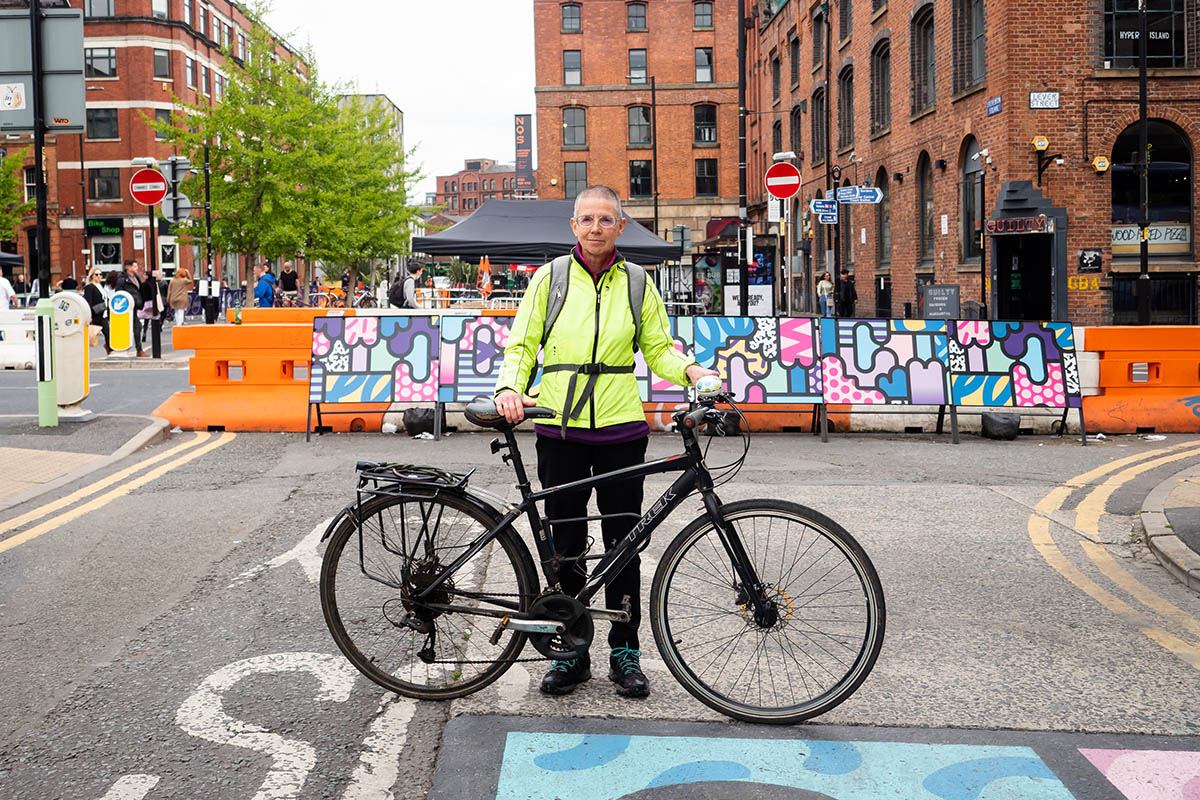
I feel quite positive about getting older. I cycle everywhere – all the journeys that I do, going to the cinema, going shopping, visiting friends are all by bike. Most of my friends are about the same age as me, or older, and they’re all active as well. I don’t feel any age particularly, I probably feel about 40 and I’ve just turned 63!
I met my partner, Marion, when I first moved to Manchester. She was living with MS (Multiple Sclerosis) all her life and she died seven years ago. So, thinking about ageing, losing your partner is something that I’ve had to deal with. I’m also aware of how terrible the social care situation in this country is, it’s just dire for loads of people. If me or any of my friends did need extra care, then that is quite a scary process.
Since 2016 I’ve been volunteering at Elizabeth Gaskell’s house. It’s the house where Elizabeth Gaskell lived, who was quite a radical woman writer. As a volunteer I do anything and everything from working in the tea rooms to chatting to visitors.
We do a lot of weddings there – the idea is that the bride can get ready in the bedroom, and then there’s all these lovely photographs of her in her dress. It could be bride or brides, we do a lot of same-sex marriages. That’s another thing that’s changed.
I continue to work part-time as a librarian, and I still enjoy it. Libraries are amazing places to promote positive LGBT+ role models and resources. That’s what they’re all about: access to information. The more we can provide, the better.
